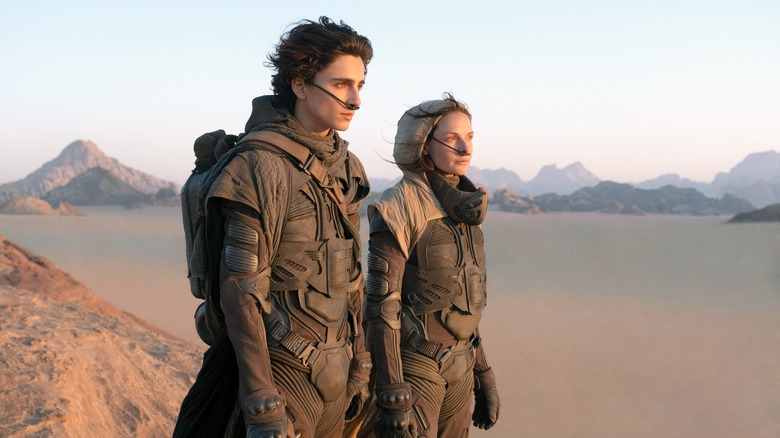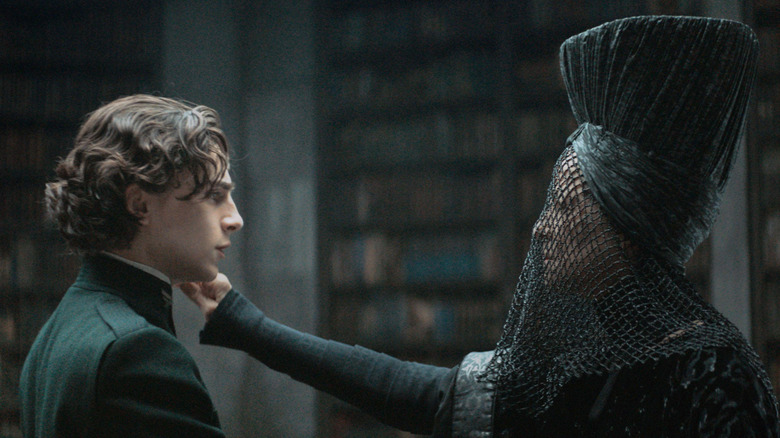Denis Villeneuve Was Terrified By The Possibility Of Actually Directing Dune
Back in 2016, Denis Villenueve was asked at a press conference for "Arrival" what movie he'd make if he was given a blank check. His answer was immediate: "Dune." Villenueve's repeatedly made it clear over the years that he's been a fan of those worm-filled, philosophical space opera novels since he was "13 or 14 years old," and his love for the series has only grown over time. After he'd undeniably proven himself with his work on "Arrival" and "Blade Runner: 2049," it seemed like a no-brainer to hand him the reins for the adaptation of Frank Herbert's masterpiece. If anyone could pull this off, it was him.
But for Villeneuve, the realization of what was being given to him was also terrifying. "The idea that I might actually get to do 'Dune,' to make a movie of that book, it was ... I suddenly had a lot of fear," he told Rolling Stone in 2021. It's easy to see why: "Dune" is an ambitious novel, one that's often been considered unfilmable. Not only do you have to figure out how to make giant worms seem realistic, but you also have to figure out how to make the book's stoic characters be relatable and sympathetic.
It's not that "Dune" the novel doesn't have any sympathetic characters; it's just that they live in a world where displaying any emotion on their face is a sign of weakness. A significant percentage of the book is made up of stone-faced characters talking to each other, filling their seemingly-innocuous statements with subtle accusations and manipulations that only make sense with constant narration unpacking them. How do you pull all of that off in a visual medium? We know from David Lynch's attempt at "Dune" that constant voiceovers simply won't work.
But fear is the mindkiller, after all
Denis Villenueve, fortunately, felt more than just fear when offered the chance to adapt Frank Herbert's work. "The excitement of doing it was far more powerful than the fear," he said. "Even just opening up the book and reading that first page once again, it was like, 'Ah! There it is. I see it!' If I can get even 10% of that [he points to his head] on the screen, I will have succeeded."
Although we've only seen half of Villeneuve's adaptation so far, it's safe to say he's gotten more than just 10% of the novel on screen. He somehow captured the sheer scale and beauty of the sandworms as described in the books, and he managed to at least partly compensate for the source material's constant internal narrations. We don't get to hear any characters' thoughts in Villeneuve's adaptation, but he did invent a new sign language for the Atreides to use, which helped bridge some of that gap.
Of course, not everything from the book has made it into Villeneuve's work. There's a ton of political scheming in the first half of "Dune," most of it centering around Jessica, Leto and Paul trying to figure out the identity of the Harkonnen spy they suspect is among them. Almost all of this is cut from the film, which admittedly makes sense: This storyline was where the book most relied on giving us the character's direct thoughts. And even without this subplot, the first "Dune" film still felt like it was struggling to include as much as it could.
But overall, Villenueve has proven himself right for ignoring that initial fear. His first "Dune" film was undeniably impressive, and there's no reason to think "Dune: Part 2" will be any different.

